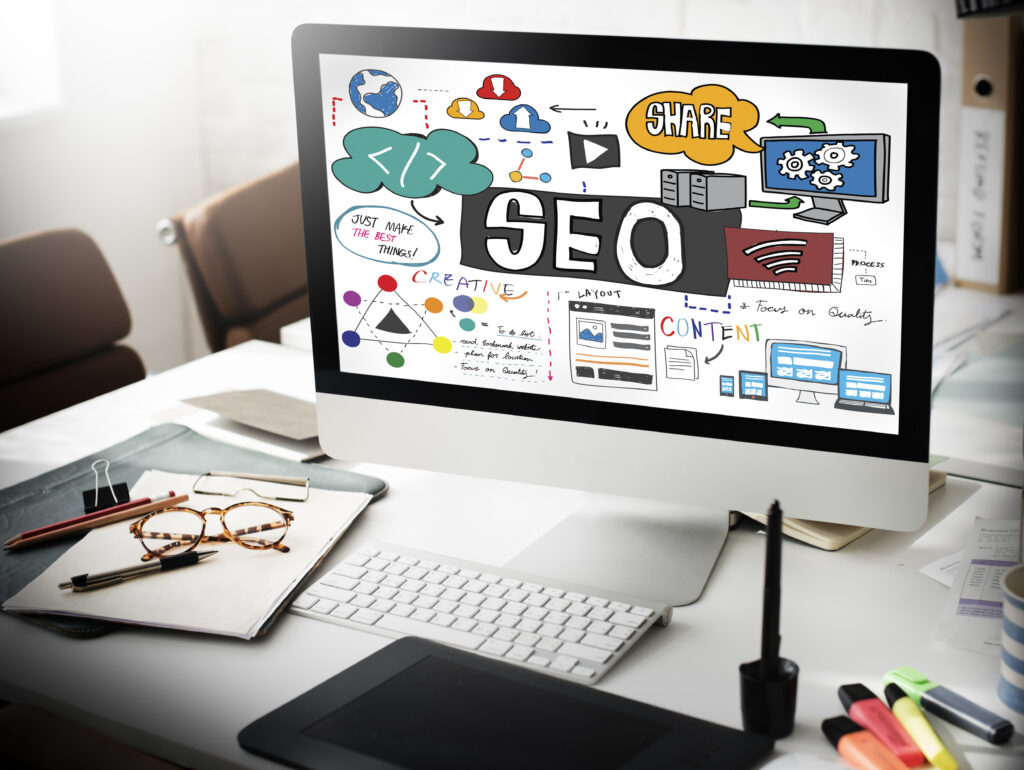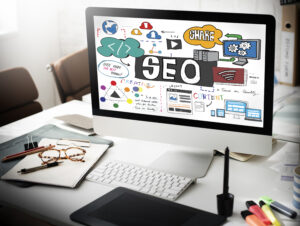How Agencies Are Prioritising SEO Over PPC for Long-Term ROI?
Blogs | Category
Written By: Lauren Davison
How Agencies Are Prioritising SEO Over PPC for Long-Term ROI?
Blogs | Category
Written By: Author Name
Introduction
Marketing managers, e-commerce platforms, and SaaS companies are always chasing growth. But which strategy provides more enduring value: SEO vs PPC for ROI? Paid ads can bring traffic fast, but the results stop when the budget ends.
That is why agencies are increasingly adopting SEO for a more predictable strategy over PPC. With proper strategy, SEO fosters consistent visibility, organic traffic, and long-term ROI.
In this blog, we discuss why SEO is becoming the best fit for companies to achieve sustainable growth.
Understanding Predictable SEO
Predictable SEO is a technique that is concerned with long-term and consistent results rather than short-term successes. It depends upon a disciplined strategy to enhance search visibility.
It encompasses developing quality content, optimising website structure for both users and search engines, and acquiring authoritative backlinks. It enables organisations to predict traffic, leads, and sales with greater accuracy.
For digital marketers, e-commerce sites, and SaaS businesses, this tactic eliminates uncertainty and makes growth sustainable in the long term.
Core Components
- Technical SEO: Ensure your site is easy to crawl and index for search engines. It involves optimising site speed, repairing dead links, employing correct redirects, and making the website mobile-friendly. A technically stable site serves as the base for all the other SEO activities.
- Content Strategy: Concentrates on producing relevant, helpful, and interesting content for your audience. It encompasses blog articles, guides, product pages, and multimedia material that respond to user questions and complement search intent.
- On-Page Optimisation: Involves optimising individual pages for both users and search engines. It includes clear headings, keyword placement, meta titles and descriptions, internal linking, and proper use of images. Well-optimised pages improve rankings and user experience.
- High-Quality Backlinks: Building links from reputable websites increases your site’s authority. Backlinks suggest to search engines that your material is credible and useful. Quality links help improve rankings and attract referral traffic over time.

Predictable vs Reactive SEO
Aspect | Predictable SEO | Reactive SEO |
Strategy | Has a planned, regular approach with definite objectives and timeframes. | Works in response to immediate needs or sudden issues. |
Content Creation | Produces regular, high-quality content aligned with user intent and keywords. | Publishes content sporadically without long-term planning. |
Traffic Growth | Builds steady and sustainable organic traffic over time. | Traffic spikes are short-lived and inconsistent. |
Ranking Stability | Focuses on long-term improvements and maintains rankings consistently. | Rankings fluctuate due to lack of ongoing optimisation. |
ROI | Offers predictable returns and measurable performance for long-term growth. | Returns are uncertain and often rely on luck or timing. |
Adaptability | Can adjust based on data while following a structured plan. | Changes are reactive, often causing gaps or missed opportunities. |
Why Are Agencies Moving Away From PPC?
Rising Cost of Paid Advertising
One of the main reasons agencies are shifting focus is the rising cost of paid advertising. Every click comes at a price, and as more businesses compete for the same audience, costs continue to rise. Small and mid-sized companies often struggle to maintain campaigns without overspending.
This is the reason that PPC replacement with SEO is such a desirable choice. Investing in content, site optimisation, and backlinks, agencies are able to provide long-term visibility and guaranteed results.
SEO is a cost-effective solution to attract customers on a regular basis, making it a more intelligent choice for sustainable growth.
Dependency on Paid Channels Is Risky
Heavy dependence on paid campaigns is dangerous for any company. Ad traffic ends as soon as the campaign does. Unlike organic channels, paid ads do not create long-term visibility. This makes growth uncertain and temporary.
Most agencies consider this to be a major concern. Intense competition and evolving ad platforms can lead to inconsistent outcomes.
SEO creates a steady flow of visitors over time. With the right approach, businesses can maintain consistent traffic, leads, and sales without relying solely on paid channels.
Organic Search Offers Sustainable Growth
When comparing paid vs organic search, organic SEO gives lasting benefits. Creating helpful content, improving site structure, and earning quality backlinks increases visibility steadily.
This ongoing presence attracts visitors naturally, without constant spending on ads. Over time, organic traffic becomes more reliable and easier to predict.
For marketing managers, e-commerce platforms, and SaaS companies, focusing on organic search helps build authority, trust, and long-term growth. It’s a strategy designed for long-term success rather than short-term wins.
Advantages of Replacing PPC With Predictable SEO
Lower Long-Term Costs
Pay-per-click ads work fast, but they are expensive to keep running. The moment you stop paying, your traffic drops.
SEO is more like owning property. The upfront work, such as creating quality content, improving site structure, and earning links, takes time.
This shift changes how businesses use their budgets. Instead of pouring money into ads every month, you make a one-time investment that keeps producing results. For small businesses, SEO makes growth more predictable.
Increased Brand Authority and Trust
People trust information they find through their own search. When your site shows up high in organic results, it signals brand authority and trust. That difference shapes how users see your brand.
Search engines reward pages that provide clear answers and a good user experience. Over time, repeated visibility strengthens your position. When people keep seeing your site listed among the top results, it reinforces the idea that you are a leader in your space. This trust often leads to higher click-through rates, longer visits, and more referrals.
Sustainable Traffic and Conversions
When comparing SEO vs PPC for ROI, one key difference is sustainability. PPC delivers quick traffic, but it vanishes the moment the ads stop. This makes it hard to rely on it for steady growth.
SEO creates a lasting source of leads. Once your pages rank, they can bring in visitors day after day without extra cost. This steady flow of traffic ensures your sales pipeline stays active even when ad budgets are tight.
Conversions also improve over time. Organic visitors often trust search results more than ads. This makes them more likely to read, engage, and make a purchase.
Flexibility Across Markets
An effective SEO strategy for agencies makes it easier to scale in different markets. Unlike PPC, where costs rise as you target new regions or audiences, SEO adapts without sharp increases in spend.
For local growth, content can focus on specific cities, neighbourhoods, or services. This helps small businesses connect with nearby customers in a cost-friendly way.
For global expansion, SEO can target multiple languages or regions, allowing brands to reach wider audiences without starting campaigns from scratch.
This flexibility also supports long-term planning. Agencies can build tailored approaches for each client, whether they want to dominate a local niche or compete in international markets.
Implementing Predictable SEO – Strategies Agencies Are Using
Agencies begin with a full audit check to see where a site stands. This step gives a clear view of strengths and weaknesses.
A detailed audit often includes:
- Technical health check: Looking at speed, mobile use, crawl errors, broken links, and indexing issues that block search engines.
- Site structure review: Checking how pages are linked, the depth of navigation, and if important pages are easy to find.
- Content gap analysis: Spotting missing topics or keywords that competitors rank for but the site does not.
- On-page factors: Reviewing titles, headings, meta descriptions, and internal linking for clarity and relevance.
- User experience factors: Measuring ease of use, layout, and engagement to see if the site keeps visitors interested.
- Backlink profile: Checking the quality and diversity of external links to ensure they support authority.
Keyword Research and Content Mapping
After the audit, agencies focus on finding the right keywords and building a clear content plan. This step makes sure the site attracts the right visitors and supports business goals.
Key actions include:
- Finding search intent: Looking at what people want when they type certain terms, such as buying, learning, or comparing.
- Balancing volume and value: Targeting keywords that bring real leads, not just high traffic numbers.
- Prioritising business goals: Aligning terms with services, products, or offers that matter most for revenue.
- Mapping content types: Deciding if a keyword needs a blog, service page, guide, or FAQ to meet user needs.
- Organising clusters: Grouping related terms into themes so the site builds topical authority over time.
- Avoiding overlap: Ensuring each page targets a unique keyword set to prevent internal competition.
Link-Building and Authority Growth
In the comparison of SEO vs PPC for ROI, link-building plays a major role in why SEO often delivers stronger returns over time. Backlinks act like votes of trust from other sites, showing search engines that your content has value.
Key steps in this process include:
- Earning links from relevant sources: Reaching out to industry blogs, news outlets, and trusted directories that connect to the client’s niche.
- Creating shareable assets: Publishing guides, case studies, or research that other sites want to reference.
- Digital PR efforts: Building relationships with publishers and journalists who can provide exposure and natural mentions.
- Monitoring backlink health: Checking for spammy or harmful links and removing them to protect the site’s reputation.
- Strengthening internal linking: Connecting pages within the site to spread authority and guide users through related content.
Performance Tracking and Continuous Optimisation
Strong SEO campaigns do not stop at implementation. Agencies track key data to measure progress and make adjustments as needed. This ensures that results improve month after month.
Important actions include:
- Monitoring organic traffic: Checking which pages bring visitors and how numbers change over time.
- Reviewing conversion data: Studying sign-ups, calls, or sales to see if traffic is turning into leads or customers.
- Tracking keyword positions: Watching how pages move up or down in search results and spotting chances to climb higher.
- Studying user behaviour: Looking at bounce rates, time on site, and click paths to learn how visitors interact with content.
- Testing and refining: Updating pages with better headlines, clearer calls to action, or new internal links to boost performance.
- Reporting with clarity: Creating easy-to-read reports that show clients where growth is happening and what needs more work.
Future Trends: Will SEO Fully Replace PPC?
When comparing SEO vs PPC for ROI, many businesses find that a balanced mix works best. SEO builds long-term authority and steady traffic, while PPC provides quick visibility for time-sensitive offers or new product launches.
Agencies often use PPC to test keywords and gather data, then feed those insights into organic campaigns. At the same time, strong SEO reduces reliance on paid ads by creating sustainable growth.
This hybrid model enables brands to enjoy the benefits of both, achieving fast results from PPC and lasting returns from SEO, while keeping overall costs under control.
AI and Predictive Analytics in SEO
AI tools are reshaping how agencies plan and refine campaigns. With predictive analytics, teams can forecast search trends, user behaviour, and shifts in demand before they happen. This allows agencies to adjust content, keywords, and site structure early, giving clients an edge in crowded markets.
An advanced SEO strategy for agencies now includes machine learning tools that spot gaps, automate reporting, and improve targeting with precision.
While PPC reacts to budgets, AI-powered SEO builds smarter long-term growth. As these tools evolve, agencies will rely even more on data-driven insights to guide sustainable success.
Long-Term Digital Marketing Sustainability
AI tools are reshaping how agencies plan and refine campaigns. With predictive analytics, teams can forecast search trends, user behaviour, and shifts in demand before they happen. This allows agencies to adjust content, keywords, and site structure early, giving clients an edge in crowded markets.
An advanced SEO strategy for agencies now includes machine learning tools that spot gaps, automate reporting, and improve targeting with precision.
While PPC reacts to budgets, AI-powered SEO builds smarter long-term growth. As these tools evolve, agencies will rely even more on data-driven insights to guide sustainable success.
Conclusion – Embracing Predictable SEO for Business Growth
Predictable SEO delivers stronger ROI, lasting growth, and freedom from rising ad costs. By auditing, planning, executing, and monitoring campaigns, businesses can reduce reliance on paid ads and build a stable digital future.
Ready to proceed with the next step? Join hands with Midland Marketing to develop a customised SEO plan that generates sustainable outcomes and facilitates long-term business success.
Frequently Asked Questions
1. Why are agencies shifting focus from PPC to SEO?
Agencies see SEO as a long-term asset. Unlike PPC, which stops when budgets pause, SEO builds steady traffic and better ROI over time.
2. How does SEO lower marketing costs?
Once strong rankings are achieved, businesses get free ongoing traffic. This reduces the need for constant ad spend.
3. Can SEO deliver results as fast as PPC?
No, SEO takes time to grow. But its results last much longer, making it a more reliable investment.
4. What role do audits play in SEO campaigns?
Audits uncover technical issues, content gaps, and site weaknesses. Fixing these areas strengthens performance and supports growth.
5. Is PPC still useful alongside SEO?
Yes, PPC can help with short-term campaigns or launches. Many agencies now use both, but rely on SEO for sustainable results.
Want some more?
Latest Insights & News

SEO vs PPC for ROI: Why Agencies Are Focusing on Organic Growth
How Agencies Are Prioritising SEO Over PPC for Long-Term ROI? Blogs | Category Written By: Lauren Davison How Agencies Are Prioritising SEO Over PPC for

How to Build Your Brand With Colour in Web Design
Colour in web design is more than aesthetics — it shapes first impressions, builds recognition, and drives engagement. Learn how to use colour strategically to define your brand and connect with your audience across your website and beyond.

What is White Space & Why You Shouldn’t Be Afraid to Use It
White space, sometimes called negative space, is a key design element. Learn how using white space in web design can improve readability, UX, and user engagement for your business by creating clean, focused, and professional layouts.
